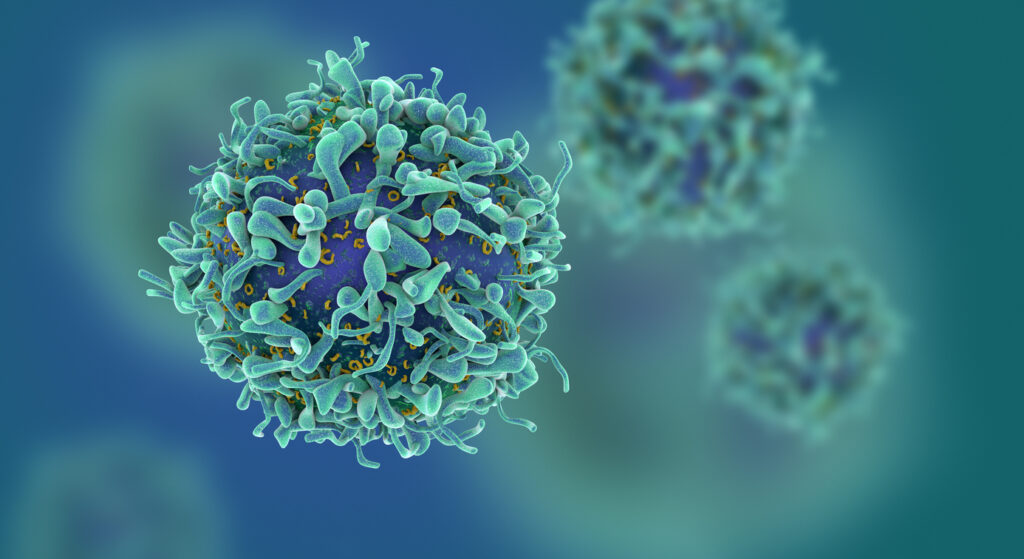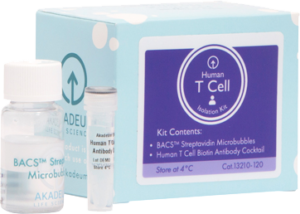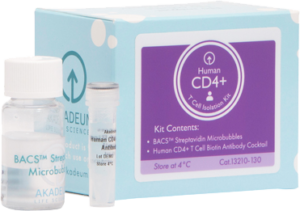Different Types of T Cells and Their Functions
Updated on Apr 7, 2025 Share

T cells, or T lymphocytes, are a critical component of the immune system, with several different types playing unique roles in defending the body. The main types of T cells include helper T cells, cytotoxic T cells, regulatory T cells, and memory T cells, each specialized to recognize and respond to various pathogens. These cells mature in the thymus and are released into the bloodstream as naïve T cells, prepared to encounter antigens for the first time. Understanding the different types of T cells is essential for research and therapeutic applications. Read on to learn more about the functions and importance of each T cell type in immune response.
T Cell Activation:
When a T cell encounters a recognizable APC, the naïve cell receives a signal to mature. There are three types of signals: TCR, BCR, and cytokine signals. If a cell receives all three signals, it will mature into an effector cell. If a cell only receives one of the signals (TCR or BCR), the cell will become useless.
1. Effector Cells
Depending on the APC a naïve cell comes across it can become an effector T cell. Effector T cells have relatively short lifespans and carry out the functions of an immune response. They can be cytotoxic, helper, and regulatory T cells.
2. Cytotoxic T Cells
Cytotoxic T Cells, also known as CD8+ cells, have the primary job to kill toxic/target cells. Upon recognition, their purpose becomes the removal of virally infected cells, bacteria, and tumor fragments (such as cancer cells) through a process called apoptosis. Apoptosis occurs when a cell’s internal organelles are destroyed causing it to die from the inside out.
3. Helper T Cells
T helper cells, or CD4+ cells, are similar to cytotoxic cells but have a wider range of functions. These cells are extremely important to cell immunity because they are required for most adaptive immune responses. T helper cells become activated when presented with antigens and have the ability to differentiate into cell subtypes. When activated, helper T cells multiply and secrete cytokines that summon macrophages and cytotoxic T cells to the infected site.
4. Regulatory T Cells
The final type of effector cell is the regulatory T cell. Regulatory T cells are tasked with stopping an autoimmune response once the threat has been eliminated. After helper T cells and cytotoxic T cells bind to a pathogen and work together to rid the body of it, they no longer serve a purpose. Regulatory T cells stop them from taking up space or accidentally attacking healthy cells until they succumb to apoptosis.
- Learn more about Sample Preparation for Rare Cell Isolation (Tregs) using Microbubbles
- Download the “Quick and Gentle Isolation of Unique Cell Populations” App Note
5. Memory T Cells
While these three types of effector cells handle the main immune response, they are not the only variations of T cells. Some types of T lymphocytes are present even after removing a pathogen. These long-living lymphocytes are memory T cells and are highly capable of responding to antigens upon reintroduction–which helps the body build immunological tolerance.
These cells are formed after an infection and are extremely important because they have the ability to expand into large numbers of effector T cells upon exposure to familiar antigens. Memory cells are unique because they remember pathogens and infectious cells faster than others allowing them to fight off bacteria and viruses quickly. Memory T cells are the reason vaccines can create immunities in the body.
Cell Types: Applications
Each type of T cell can help us to learn about diseases and our bodies’ responses to them. Naïve T cells teach us about adaptability; effector cells give us ideas for methods of treatment such as TCR therapy; memory T cells assist us in creating vaccines and medicine. T cells are an essential part of the medical research field and could pave the way to many breakthroughs in the near future. Learn more about common applications for Akadeum’s microbubbles
Try Akadeum’s Cell Separation Products Today
If you are searching for the most effective way to isolate T cells from unwanted cell populations, Akadeum’s buoyancy-activated cell sorting (BACS) technology offers an exceptionally gentle method for T cell enrichment that maintains the health and physiology of delicate immune cells.
Shop T Cell Enrichment Kits from Akadeum:

|
Looking for more? Book a meeting with our expert team of scientists to discuss your application today!
Akadeum’s microbubble-based cell separation is specifically designed for fast and gentle sample preparation that can deliver a highly-enriched population of healthy, viable cells. Learn more about Akadeum’s T cell isolation products to see how our ready-to-use kits can help you overcome longstanding headaches in sample preparation.




